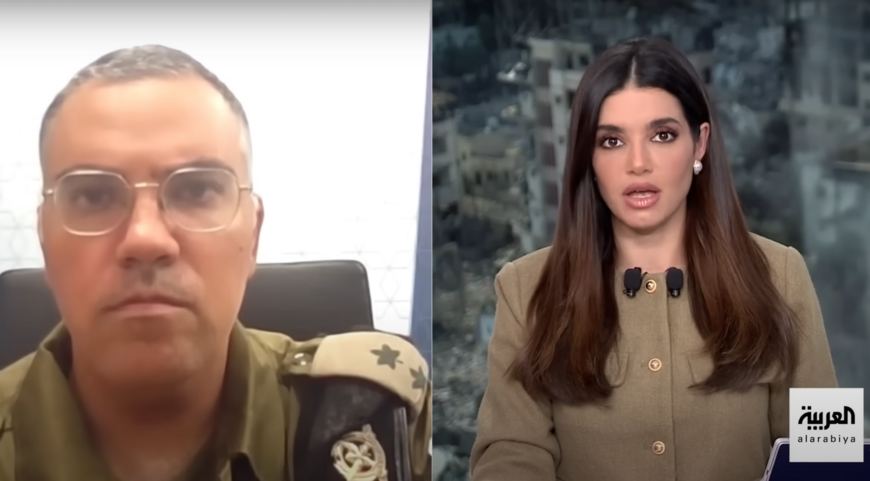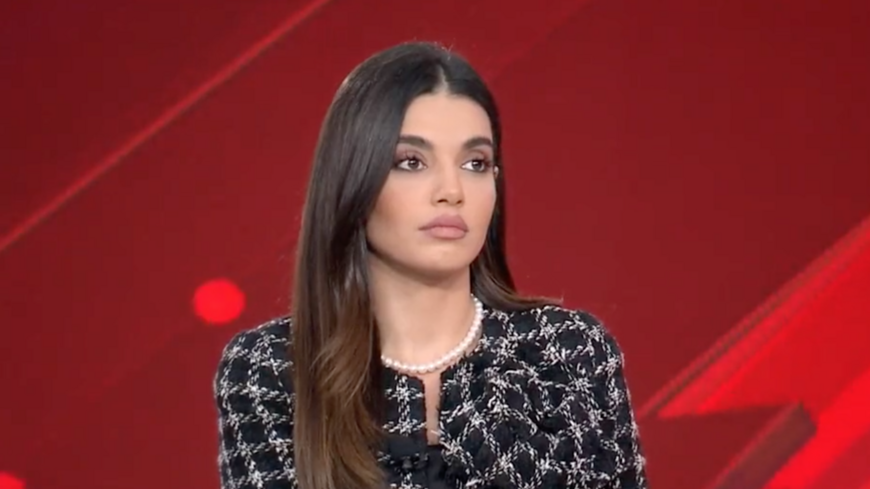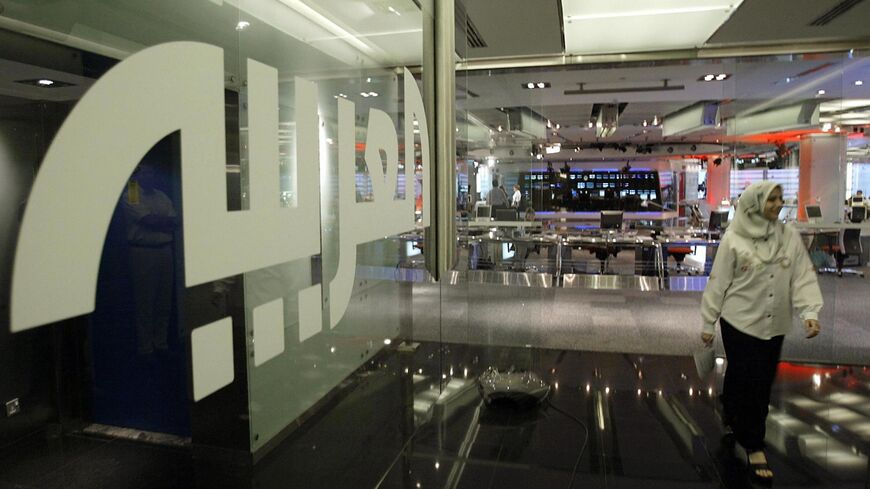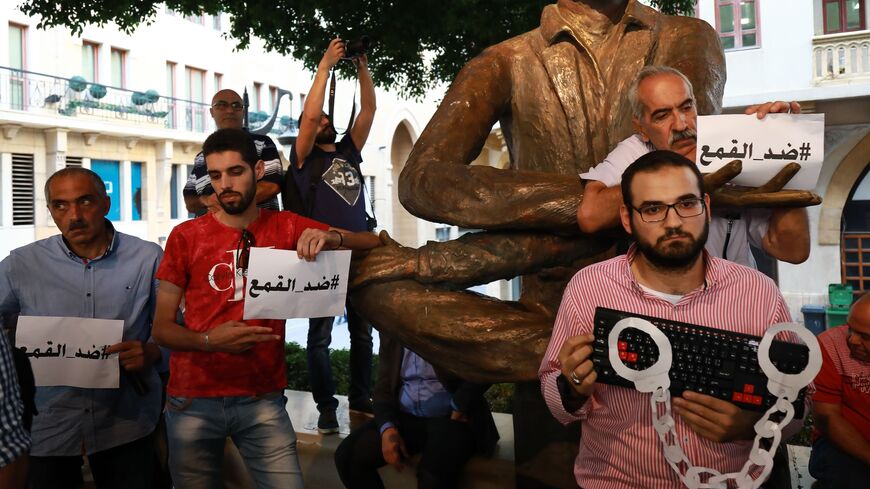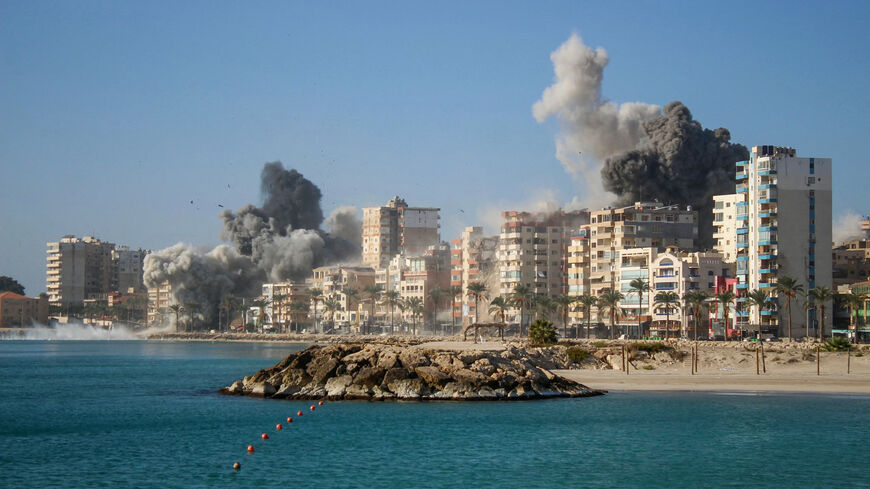Al Arabiya journalist questioned in Lebanon for interviewing Israeli official
The case of Layal al-Ekhtiar, who interviewed Israel's Arabic-language military spokesman last year as the Gaza war raged, has divided Lebanese political opinion.

BEIRUT — A military judge questioned Dubai-based Lebanese journalist and anchor Layal al-Ekhtiar upon her arrival at the Beirut-Rafic Hariri International Airport Wednesday, for allegedly violating the law on boycotting Israel, reviving the debate about press freedoms in Lebanon.
A prominent TV anchor for Al Arabiya in Dubai, Ekhtiar has faced a barrage of hatred and harassment since she conducted a brief interview in October 2023 with Israeli military spokesperson for Arabic media Avichay Adraee as part of the channel's broadcast coverage of the Hamas-Israel war.
Ekhtiar flew in from the United Arab Emirates after receiving a notice to appear for questioning. According to local media, the journalist, who previously worked with Lebanese channels LBCI and OTV and the television network Al-Hurra, went directly from the airport to the military court building.
Following the interrogation, Judge Fadi Sawan released Ekhtiar on a bail of 50 million Lebanese pounds (around $558) and ordered her kept under investigation.
Judge Fadi Akiki, the government commissioner of military courts who filed the complaint against Ekhtiar last May, asked and received permission from Sawan to confiscate the journalist’s phone and search it to ensure that she is not in contact with any Israeli entities.
The Lebanese newspaper Nidaa al-Watan cited Ekhtiar as affirming during the interrogation that she had been “surprised” when she was asked by Al Arabiya to interview Adraee on air in October 2023, stressing that she could not refuse the request. The following month, Lebanese authorities issued a search warrant against Ekhtiar because of the interview.
Later, in May 2024, Akiki filed his complaint against Ekhtiar and three other Lebanese journalists working in the region — Michella Haddad (SkyNews Arabia), Taher Baraka (Al Arabiya) and Ali Alawiyeh (Russia Today) — for violating the law on boycotting Israel by interviewing Israeli officials and experts for their respective channels’ coverage of the war in Gaza.
“I conducted the interview respectfully, asked all the necessary questions, and I ended the interview,” Ekhtiyar told Arab News in October 2023. “That’s it, nothing more. I didn’t praise him, but I didn’t insult him either.”
She added, “A respectable journalist will respect their guest, no matter who it may be, even if it’s someone from the opposition.”
Technically at war
Under Lebanese law, contact between Lebanese and Israeli citizens is prohibited and could amount to treason or espionage, both punishable by prison or death. The restriction is embedded in the criminal code as the Boycott of Israel Law (1955) and the Code of Military Justice. The prohibition has been enforced on several occasions, including in 2018, when authorities detained the actor Ziad Itani for several months for allegedly “collaborating with the enemy.” His trial on charges of spying for Israel was discredited by human rights organizations.
Ekhtiar’s ongoing case sparked mixed reactions among social media users, with some calling her a traitor and a spy for Israel, and criticizing the judge’s decision to release her on Wednesday, while others expressed support for her.
كل الدعم للاعلامية #ليال_الاختيار وللصحافة الحرة بوجه اي شيء اخر.
— Zareh Parikian زاريه باريكيان (@Zarehparikian) January 22, 2025
حرية التعبير هو المبدأ الاساس ولا نسمح بالتعرض له.@layal_alekhtiar pic.twitter.com/VTP6VstIhV
Lebanon and Israel remain technically at war. Most recently, from October 2023 to late November 2024, the Israeli army and the Iran-backed Hezbollah group, a Hamas ally, fought what evolved into a devastating war that killed more than 3,000 people in Lebanon and caused widespread destruction and displacement in the south.
According to the Committee to Protect Journalists, at least six Lebanese journalists were killed in Israeli strikes during the conflict, between October 2023 and October 2024.
Several journalists and activists who criticized Hezbollah or rejected the war with Israel have been subjected to defamation campaigns by Hezbollah supporters, who accuse them of treason.
In one incident, a Hezbollah member was caught on camera harassing Joyce Akiki, a reporter for the local MTV news channel, a known critic of the Islamist movement, as she covered cross-border fighting in the south in October 2023.

